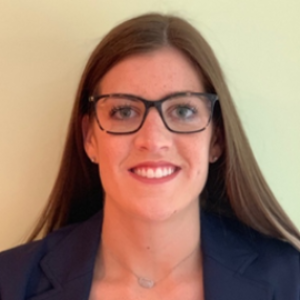Title : Ed addiction recovery consults for substance abuse lowers death and incarceration rates
Abstract:
For the past 5 years, the United States has been experiencing an opioid epidemic. Patients with Substance Use Disorder (SUD), especially with opioids, are at an increased risk of death compared to patients without SUD. It is estimated that 11.1% of adult ED patients have a SUD. In 2017, the Commonwealth of Pennsylvania initiated a “Warm Handoff” (WHO) intervention in which patients presenting to the ED with SUD are offered counseling with a certified recovery specialist (CRS) and referred to a treatment program. The purpose of this study was to evaluate the impact of CRS intervention on subsequent ED utilization. We conducted a retrospective review of patients who had a CRS consult for an acute substance or alcohol overdose, SUD contributing to their ED presentation or who presented requesting recovery assistance. Consults were divided into those that accepted and declined the WHO. Once accepted by the patient, they were counseled on Opioid Use Disorder and informed of several resources to help control their opioid dependence and relapse. Reasons for subsequent ED utilization were categorized as a primary acute overdose, substance abuse related, mental health, medical or surgical, or traumatic injury issue. Of the 75% who accepted the WHO there were significant demographic differences between the two groups regarding unemployment (59.3% of accepted vs 42.3% of declined, p<0.001) and psychiatric comorbidity (61.8% in accepted vs 39.5% in declined, p<.001). The declined group tended to use more heroin than the accepted group (54.9% vs 46.1% p = 0.06), while the accepted group was significantly more likely to abuse cocaine, methamphetamines, benzodiazepine, other opioids, cannabis, and alcohol. The index visit of the declined group was significantly more likely to involve an overdose than the accepted group (53% vs 14%, p<.001). At one year post index visit, the accepted group had more ED utilization for mental health related disorders (9.9% vs 3.1%, p 0.004) and the declined group had more overdose visits (5.0% vs 1.3%, p 0.01). Contrary to prior studies, we did not find an overall decrease in ED utilization. We did note a trend showing WHO accepted patients had more subsequent ED visits for mental health issues while the declined cohort had more overdose visits. These trends are consistent with the increased use of opioids in the declined cohort and the increased presence of mental health comorbidities in the accepted cohort.
Our study demonstrates that ED identification and intervention for patients with SUD, either from an acute overdose or as a significant comorbidity, resulted in a decrease in mortality and incarceration rates. Patients with SUD are a vulnerable population. SUD still carries negative biases and patients may be unsure how to access services. ED visits provide an opportunity for a meaningful intervention as seen through the WHO process. Our study demonstrates the positive impact a CRS can have in counseling and direct placement in treatment. Future interventions should continue to target this vulnerable population in ways that can help decrease healthcare utilization, mortality, and morbidity.
Audience Take Away Notes:
- The audience will gain a greater appreciation for the efficacy of the PA Warm Handoff (WHO) process
- Provide other health care providers with an ability to better serve the underrepresented and underserved.
- The audience will have an understanding of the positive impact CRS can have on healthcare utilization in the substance use disorder population.
- Healthcare workers need to continue to collaborate to better understand future interventions that can be utilized to continue to help decrease healthcare utilization, mortality, and morbidity.




